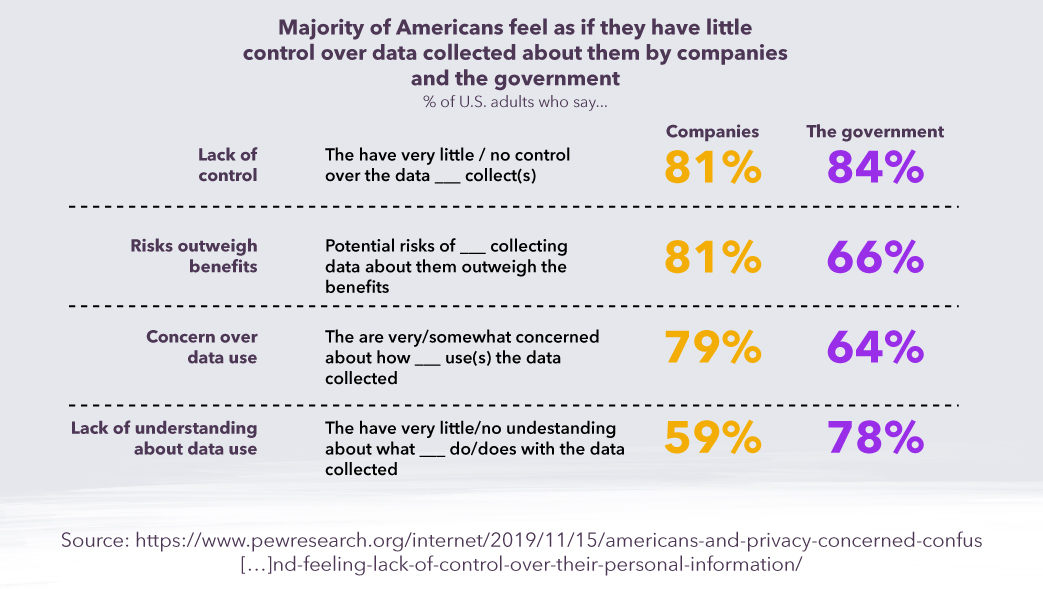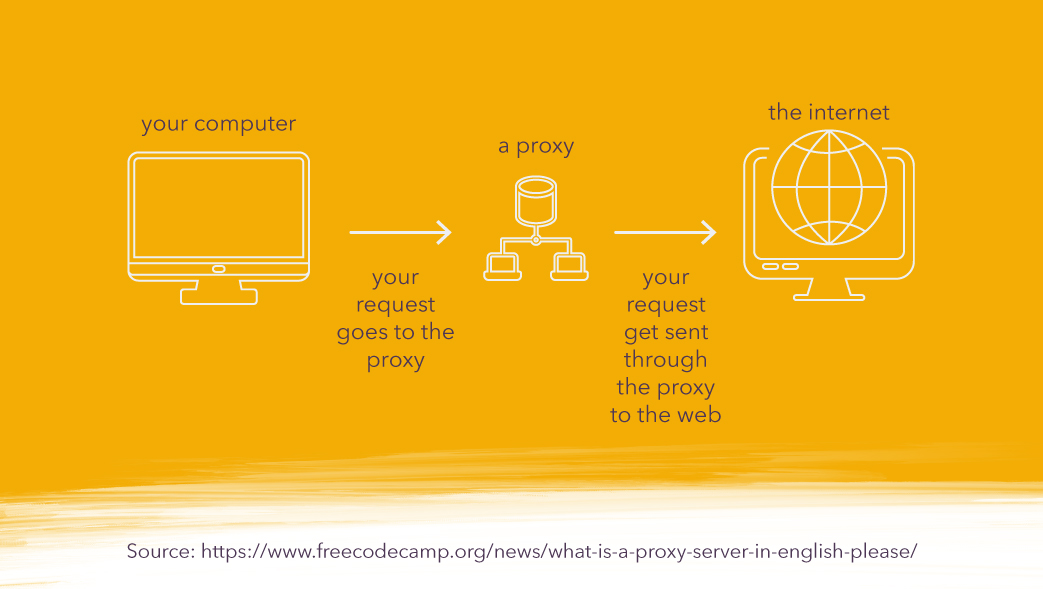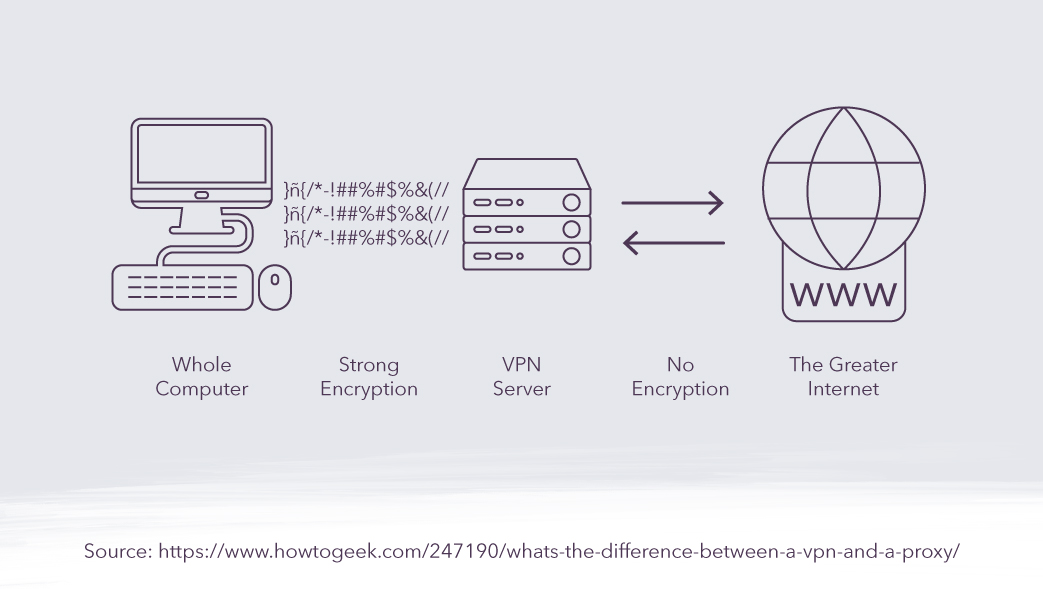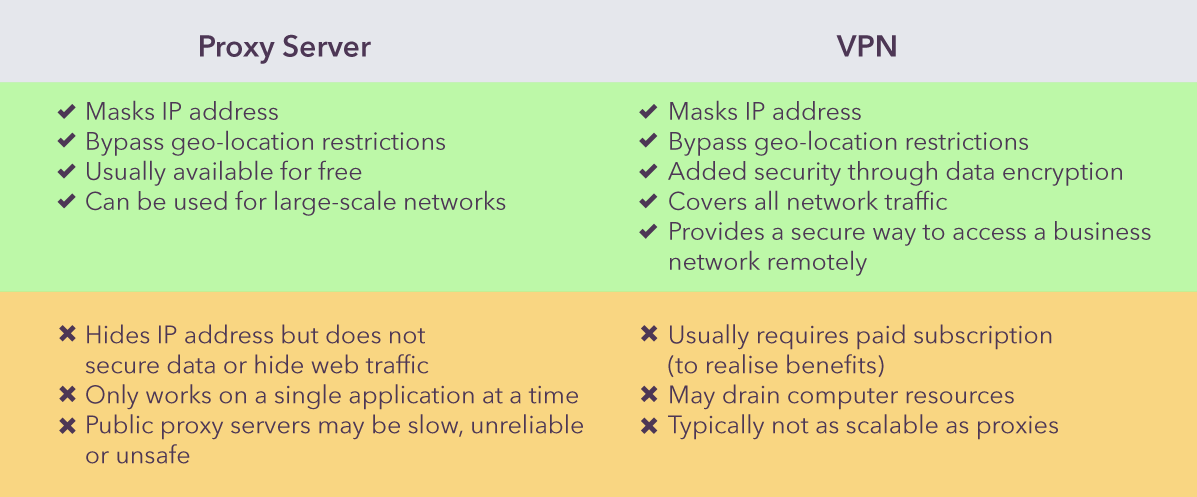Proxy or VPN: Which Should You Choose And Why?

As we move more of our lives online, we have to be aware of potential security threats. If a third party can track our internet behavior and access sensitive personal or commercial information, they could have the power to cause us major financial, reputational or emotional damage.
Even if we set aside such malicious intentions, keeping our data private and (in some cases) anonymous is an important way to protect us from being silently monitored or manipulated by others without our consent. It’s not about having something to hide, but ensuring that our personal information isn’t misused. And in the wake of recent high profile stories like the Facebook-Cambridge Analytica scandal - where the data of some 87m people was used without permission to enhance political advertising campaigns - it’s clear that internet users are waking up to the importance of protecting their personal data.
A recent Pew Research survey found that 79% of US adults are very or somewhat concerned about how private companies use the data they collect about them - 64% have the same concerns about the government. Even trusted third parties may suffer a security breach that ends up leaking your private data to hackers and putting you or your organization at risk. Over the 2017-2020 period, there were over 5,300 data breaches in the US, resulting in nearly 1bn records being exposed.

What Can You Do About It?
The same Pew survey showed that eight in ten Americans felt like they have little or no control over the data that governments or companies collect about them. But this isn’t necessarily the case: tools such as proxy servers and Virtual Private Networks (VPNs) allow you to appear as if you are connecting to the internet from another location. They do this by masking your IP address, which is essentially your public ID document on the Internet. This provides an important layer of privacy and security, while also enabling you to circumvent geo-location content restrictions (such as the ones that block you from streaming your favorite TV show when traveling overseas).
Proxy vs VPN: Key Differences
At a very basic level, both proxy servers and VPNs work by connecting you to the internet via a remote computer server. But the way they go about doing this is quite different, and has implications for when one is more suitable than the other. So how do you know which one is right for you? Let’s first look more closely at how each works and the key differences between them.
A proxy server acts as a gateway or intermediary between the user and the websites or applications they are accessing. As all communication is diverted through the proxy, this provides the IP address and location rather than the user. Not only does this cloak your personal information, it also allows you to ‘connect’ from anywhere in the world. For example, if you’re travelling in Europe and want to visit a site that is only available in the US, you can use a proxy server located in the US to gain access. A key characteristic is that proxies work on a single application-by-application basis, so it would be configured on a single web browser rather than your entire device.

A VPN also allows users to communicate with websites or apps with a different IP address to their own, enabling them to access via servers in almost any country in the world. However, a VPN is typically set up at the operating system level, establishing a secure tunnel with the VPN server through which all network traffic will be routed. This expands the level of privacy or anonymity beyond just a single web browser (though some VPN browser extensions are also available) to include all of your background applications and even device updates. The most important feature of VPNs is that, unlike proxies, they also encrypt all network traffic. This means that internet service providers (ISPs) or other parties will not be able to observe your online activity or intercept your data.

The Main Pros & Cons

When you might choose a proxy…
- For low-cost (free) privacy when browsing.
- For quick and simple access to geo-restricted websites or streaming content.
- As a business to prevent employees from accessing unsecured or inappropriate websites from an internal network.
When you might use a VPN…
- For secure and anonymous online browsing, particularly when using public Wi-Fi connections or sharing sensitive information.
- For more reliable streaming of geo-restricted content (paid).
- To connect securely to your business network when working remotely.
Conclusion
The bottom line is that VPNs typically offer more privacy and security, so should be the recommended choice when those are your main concerns (we’re looking at you, remote workers!). If you just need a ‘lighter’ option to browse anonymously and bypass regional content restrictions then a proxy server may be an acceptable, cheaper option. In either case, it’s important to research which proxy servers and VPN clients are reliable and safe before you jump in.
--
If you want to stay up to date with all the new content we publish on our blog, share your email and hit the subscribe button.
Also, feel free to browse through the other sections of the blog where you can find many other amazing articles on: Programming, IT, Outsourcing, and even Management.

Santiago Mino, VP of Strategy at Jobsity, has been working in Business Development for several years now helping companies and institutions achieve their goals. He holds a degree in Industrial Design, with an extensive and diverse background. Now he spearheads the sales department for Jobsity in the Greater Denver Area.